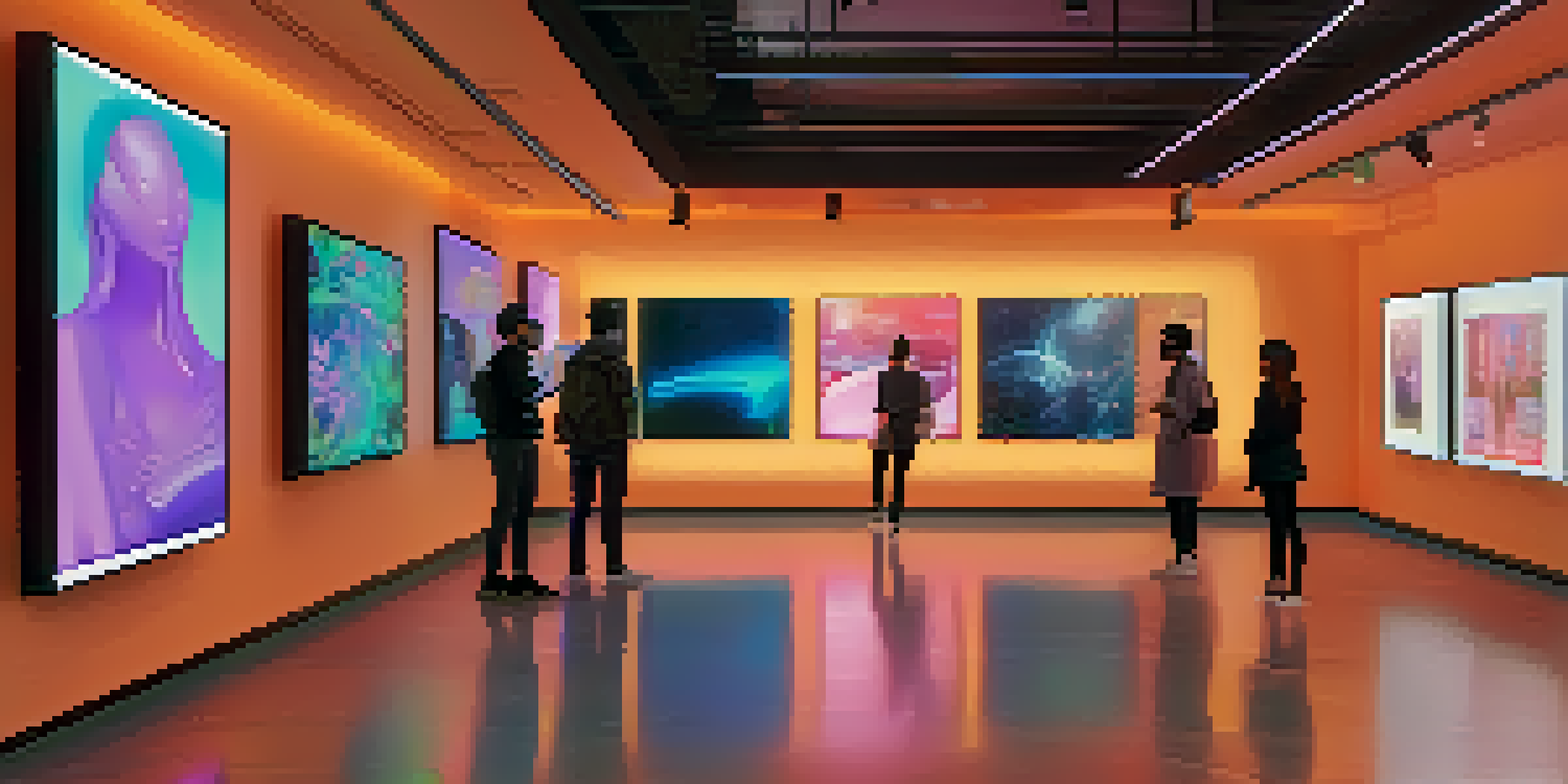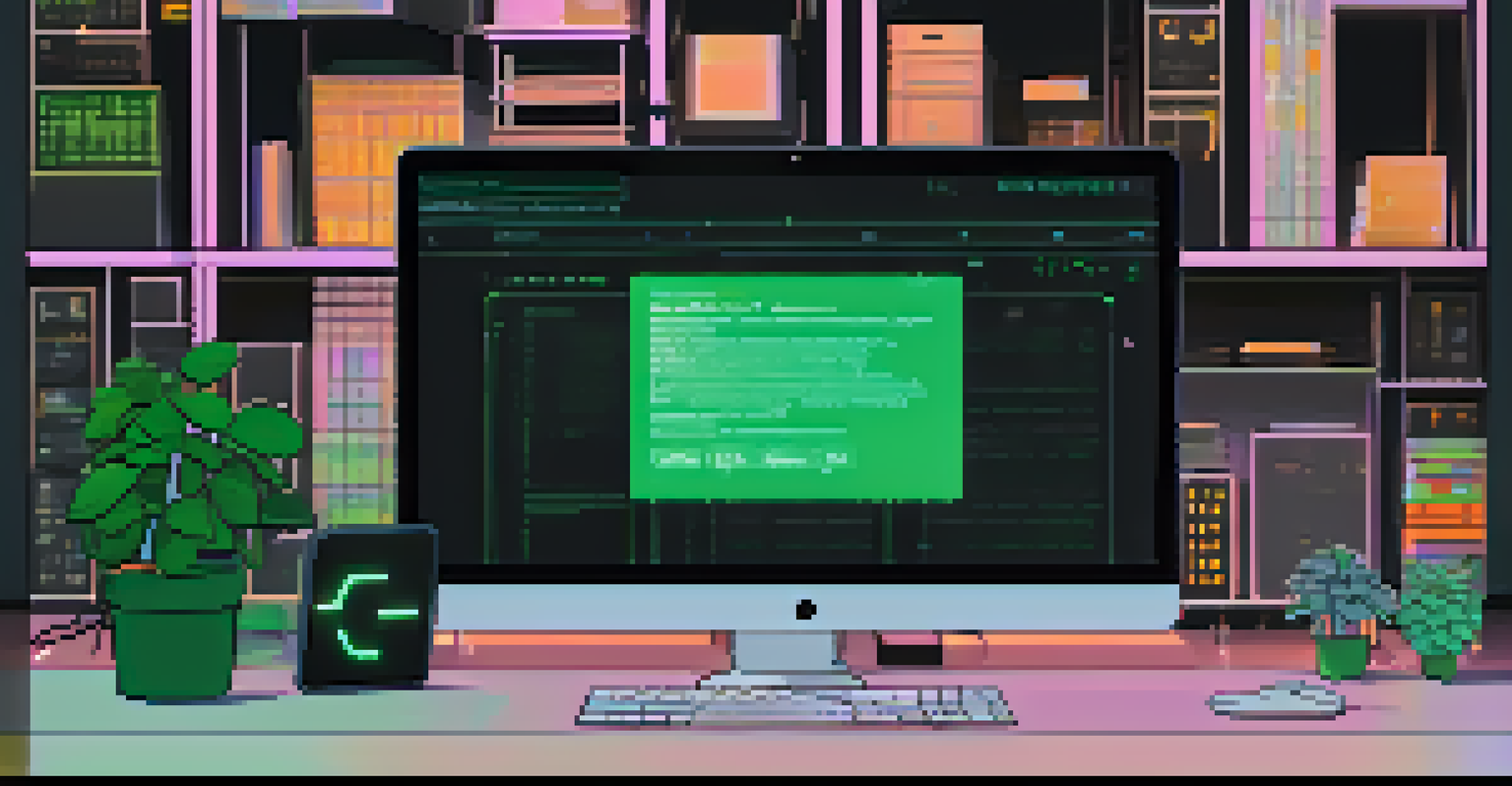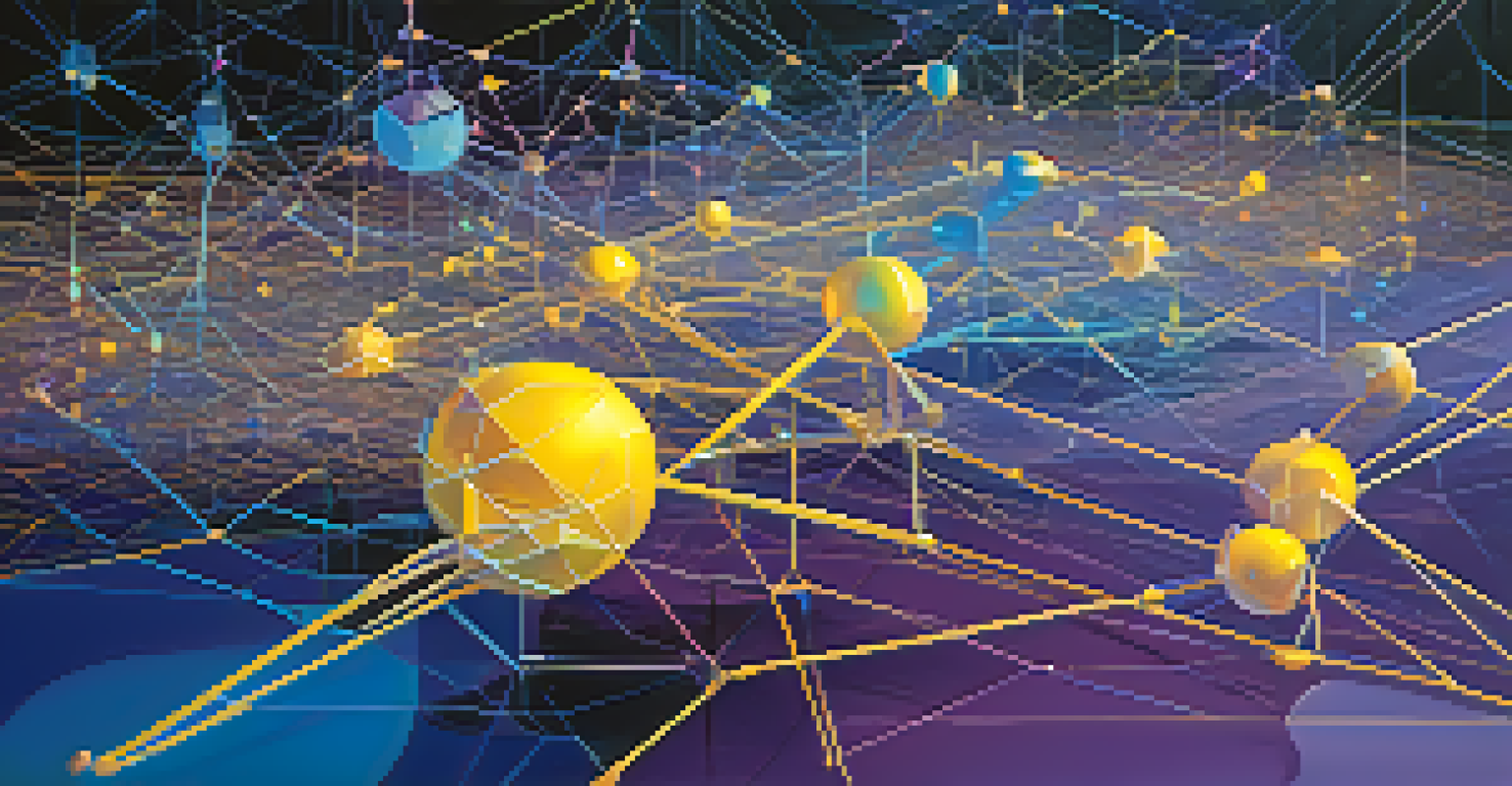Decentralization and Its Impact on NFT Economic Structures

Understanding Decentralization in the Digital Age
Decentralization refers to the distribution of authority, data, and power away from a central entity. In the digital realm, this means that no single person or organization has total control over transactions and data. Instead, power is shared among users, promoting transparency and fairness in various sectors, including finance, art, and gaming.
The future is already here – it's just not very evenly distributed.
This concept has gained traction with the rise of blockchain technology, which underpins many digital assets, including NFTs. By utilizing a decentralized network, users can engage with these assets without relying on traditional intermediaries, such as banks or art galleries. This shift not only empowers creators but also fosters innovation and creativity.
As decentralization continues to evolve, it raises questions about ownership, governance, and the future of digital assets. Understanding these dynamics is crucial for anyone looking to navigate the NFT landscape successfully.
Decentralization and NFTs: A New Paradigm
NFTs, or non-fungible tokens, are unique digital assets verified using blockchain technology. Their decentralized nature allows creators to sell their work directly to buyers, eliminating the need for middlemen. This direct relationship can lead to higher profits for artists and a richer experience for collectors, as they can interact with the creators themselves.

Moreover, decentralization encourages diversity in the NFT market. Artists from various backgrounds can showcase their work without the barriers often imposed by traditional galleries or auction houses. This democratization of access not only broadens the array of art available but also allows for a more vibrant and inclusive community.
Decentralization Empowers Creators
By removing intermediaries, decentralization allows artists to sell their work directly to buyers, enhancing profits and creativity.
As a result, the NFT ecosystem thrives on creative expression and novel ideas, challenging conventional economic structures. This shift could redefine how value is assigned and perceived in the digital art world.
Economic Structures: The Role of Smart Contracts
Smart contracts are self-executing contracts with the terms of the agreement directly written into code. In the context of NFTs, they play a vital role by automating the process of transactions and ensuring that creators receive royalties for their work. This automation not only streamlines the buying and selling process but also establishes trust between parties.
Decentralization is the future of the internet, and it will empower individuals to take back control.
The use of smart contracts allows creators to set conditions for their NFTs, such as how much they earn from future sales. This feature is revolutionary, as it empowers artists to benefit from the ongoing value of their creations rather than a one-time sale. It shifts the economic model from a linear transaction to a more sustainable, ongoing relationship.
By leveraging smart contracts, the NFT market can create a more equitable distribution of wealth among artists and collectors. This innovative approach could pave the way for new economic models that prioritize long-term value over short-term gains.
Challenges of Decentralization in the NFT Market
While decentralization offers numerous benefits, it also presents challenges that need addressing. One major concern is the potential for market volatility. Decentralized markets can experience significant price fluctuations, making it difficult for both creators and collectors to predict the value of their assets.
Additionally, the lack of regulation in decentralized environments can lead to issues such as fraud and misinformation. With no central authority to oversee transactions, users must rely on their due diligence to ensure the authenticity of the NFTs they purchase. This can be daunting for newcomers to the space without a strong understanding of the technology.
Smart Contracts Ensure Fairness
Smart contracts automate transactions and provide ongoing royalties, enabling artists to benefit from the continuous value of their work.
As the NFT market matures, finding a balance between decentralization and necessary oversight will be crucial. Addressing these challenges will help create a more stable and secure environment for all participants.
Community Governance in Decentralized NFT Platforms
Decentralized governance is a vital aspect of many NFT platforms, enabling community members to participate in decision-making processes. Through mechanisms such as voting and proposals, users can influence the direction of the platform, from fee structures to new feature implementations. This collaborative approach fosters a sense of ownership and engagement within the community.
Platforms that embrace community governance often see increased loyalty and investment from users. When individuals feel they have a say in the platform's future, they are more likely to support it actively, whether through buying, creating, or promoting NFTs. This not only strengthens the community but also enhances the overall ecosystem.
However, effective governance requires clear communication and transparency. Establishing guidelines and processes that are easy to understand will help ensure that all voices are heard, leading to a more inclusive and vibrant NFT market.
The Future of Decentralization in NFTs
As technology continues to advance, the future of decentralization in the NFT space looks promising. Innovations such as layer-2 solutions and cross-chain interoperability are making decentralized transactions faster and more efficient. These advancements could further enhance user experiences and facilitate broader adoption of NFTs across various industries.
Moreover, as more artists and creators recognize the benefits of decentralization, we can expect to see an influx of diverse voices and talents entering the NFT market. This will likely lead to richer content and a more dynamic marketplace, where the emphasis is on creativity and collaboration.
Community Governance Fosters Trust
Decentralized governance encourages user participation in decision-making, which builds loyalty and enhances the NFT ecosystem.
Ultimately, the evolution of decentralization will shape the NFT landscape, presenting new opportunities and challenges. Staying informed and adaptable will be essential for participants looking to thrive in this ever-changing environment.
Conclusion: Embracing Decentralization in the NFT Economy
In conclusion, decentralization has a profound impact on the economic structures surrounding NFTs. By empowering creators, enhancing transparency, and fostering community engagement, it transforms how art and value are perceived in the digital age. As both challenges and opportunities arise, understanding the nuances of decentralization will be key for anyone involved in the NFT space.
Moreover, as the NFT market continues to mature, embracing decentralization could lead to new economic models that prioritize fairness and sustainability. This shift may not only benefit artists and collectors but also inspire a broader cultural change in how we view ownership and value in the digital world.

As we look to the future, it's clear that decentralized technologies will play a pivotal role in shaping the NFT economy. By staying informed and engaged, we can all contribute to a more equitable and innovative landscape.